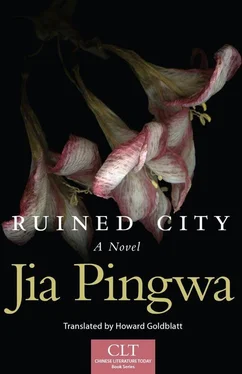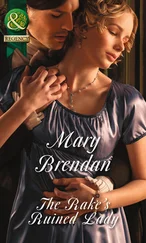“What’s he singing?” Niu Yueqing asked. “That’s not what I asked for.”
Liu Yue said it was wonderful. Back inside, she waited until Niu Yueqing went to bed before going to the study to copy down the ditty. As expected, it turned out to be quite well known in Xijing’s literary circles. Here was what she had:
Fangzi (房子 house), guzi (谷子 grain), piaozi (票子 money), qizi (妻子 wife), erzi (儿子 son), sunzi (孙子 grandson), 庄子 Zhuangzi, 老子 Laozi, 孔子 Kongzi. After a lifetime of buzz, leaving nothing but a chin with fuzz, huzi 胡子.
When she was done, she undressed and climbed into bed with Niu Yueqing, who was still awake. She touched the girl’s smooth, supple body. “You have a nice body, Liu Yue.”
The caress tickled the girl. They chatted a while before one of them said, “Time to sleep.” They soon drifted off.
The thunderstorm from the night before had cooled things off. Liu Yue had not slept well the night before, and she was exhausted. She slept soundly on this night. Yet she thought she heard something in her dream, and it might have been real. It sounded like someone moaning and whining, clearly not caused by pain; it was fast one minute and slow the next, high one instant and then low; sometimes as rapid as the hoof beats of a horse running down the street, or rain beating down on a sandy beach, at other times as leisurely as an old ox plowing a rice paddy or a kitten licking starchy paste. She didn’t know why, but she went limp at the sound, her arms leaving her at first, followed by her legs, and finally her whole body; there was nothing left but her beating heart, as her body soared, flying up into a shiny white cloud before thudding to the ground. She woke up, exhausted beyond words and drenched in sweat. Strange how comfortable she had been a moment before. Then, feeling a coolness between her legs, she reached down and found that she was wet. She was wiping it with the sheet when she heard Niu Yueqing moaning beside her.
“Are you having a nightmare, Dajie?” she called out. Niu Yueqing opened her eyes. She lay in a partial daze for a moment before she said to the girl, feeling a sense of shame, “No. Have you been awake the whole time?”
“I was asleep, but I thought I heard a noise, a strange one, and it felt like a current ran through me.”
“I think I heard that,” Niu Yueqing said, which puzzled them both.
“It must have been a dream,” Niu Yueqing said, echoed by Liu Yue: “Yes, we must have had the same dream.”
“You woke up before me, Liu Yue. Did you hear me talking in my sleep?”
“You were just whining. I woke you up because I didn’t want you to be frightened by a bad dream.”
“I’m fine. It couldn’t have been a bad dream. Go back to sleep,” Niu Yueqing said and got up to use the bathroom. Then Liu Yue went in and saw Niu Yueqing’s panties soaking in the tub, a sight that immediately told her that she and Niu Yueqing had experienced the same thing.
. . .
The Clear Void Nunnery had been built in the Tang dynasty, when, people said, it was much larger and grander, with many more monks, nuns, and worshippers than the Yunhuang Temple. Half of the structures had been destroyed in an earthquake during the Chenghua reign of the Ming dynasty, in the second half of the fifteenth century, and it had never recovered its former glory. Renovations were focused only on the remaining buildings. It suffered an even worse fate during the Cultural Revolution, when most of structures were seized by factories in the surrounding areas, while the three dozen monks and nuns dispersed. By the time religious practices resumed, an extensive search for the former monks and nuns revealed that some had died and some had resumed secular lives; only five nuns survived, living in five different villages in three neighboring counties outside Xijing. Talked into returning, they hobbled back, only to see a sight that had them wailing: the Buddha’s image had been destroyed, the halls and rooms had collapsed or had leaking roofs, and weeds had overtaken the compound. A dozen wild doves flew out from under the offering table, which was littered with their droppings. As the saying goes, if you can’t do it for the monks, at least do it for the Buddha. Still possessing a strong belief in their faith, they thought it was the Buddha’s will to have them survive all the tribulations in order to guard the temple, so they shaved off their gray hair and donned their black robes. Although contributions from worshippers were meager, and they were forced to rely on a subsidy from the city’s Ethnic Affairs Commission, at least the melodious bells were heard again in the mornings and evenings. After several years of work, the main hall was restored, the Guanyin Bodhisattva statue was repainted, and the east and west meditation rooms were renovated, but they lacked the funds to work on Shengmu Hall behind the main hall, while the factories and the local residents who were occupying the land had yet to be removed, leaving the temple territory in the shape of an upside-down gourd. None of the aging nuns could read; they knew only how to burn incense and pray. When they tried to recite the sutras they had learned years before, they could only manage to recall parts, which made them laughingstocks to the monks at the Yunhuang, Wolong, and Lihua temples. After graduating from a Buddhist seminary, Huiming was put up at the Yunhuang Temple for a short stay, just as the Buddhist Association sent over some young nuns from the Qianfo Temple on Mount Zhongnan. Upon her arrival at the Yunhuang Temple, she decided she would like to go to the Clear Void Nunnery one day, after seeing that the Yunhuang Temple was a large place with both monks and nuns, some of whom were eminent or near-immortals. As a newcomer, she knew little about the Clear Void Nunnery, so she declined when the Buddhist Association expressed a desire for her to go there. However, she began taking part in the Clear Void Nunnery’s affairs, helping to draft plans for recovering land and to write applications for funding. When everything was taking shape and she had gained some sway, she put in a request to move, but not initially as the head. Instead, she showered respect on one of the old nuns by serving as her assistant, while plotting to have the older nun one day make a fool of herself and expose her incompetence. Soon Huiming had gained the trust of all the other nuns, who backed her when it came time to replace the old nun. Huiming then employed all her skills and went where she had to in order to build up a network. She was able to obtain a large sum of dedicated funds to give Shengmu Hall a speedy restoration and a new coat of paint in the rooms. As it would take time and effort to remove the illegal occupants, she pored over Xijing’s gazettes and found a reference saying that the temple was rumored to have been where the Tang Imperial Consort, Yang Yuhuan, had become a nun. It was a providential discovery, and she made more than a dozen copies to send to the Provincial and Municipal Ethnic Affairs Commissions and the Buddhist Association. In addition, she asked Meng Yunfang to draft a report on the religious and historical importance of the ancient site where Yang Yuhuang had once been a nun, finally alerting the mayor to hold a meeting with the relevant religious offices, the factories, and the housing authorities. The occupiers were asked to relocate, the sooner the better. In the end, all of the temple’s land was recovered, except for the five-story residential building. With this impressive accomplishment behind her, she launched a restoration of the main gate. It was not the traditional arch with wood and stone carvings, but displayed grandeur comparable to the Yunhuang Temple; it received cheers from the nuns and admiration for Huiming from everyone in the Buddhist realm. Like a flower blooming in a breeze, she naturally took this opportunity to work on the relevant authorities, and eventually was promoted to head of the temple. An auspicious date was chosen for her to take over.
Читать дальше


![Matthew Vincent - [you] Ruined It for Everyone!](/books/216429/matthew-vincent-you-ruined-it-for-everyone-thumb.webp)









